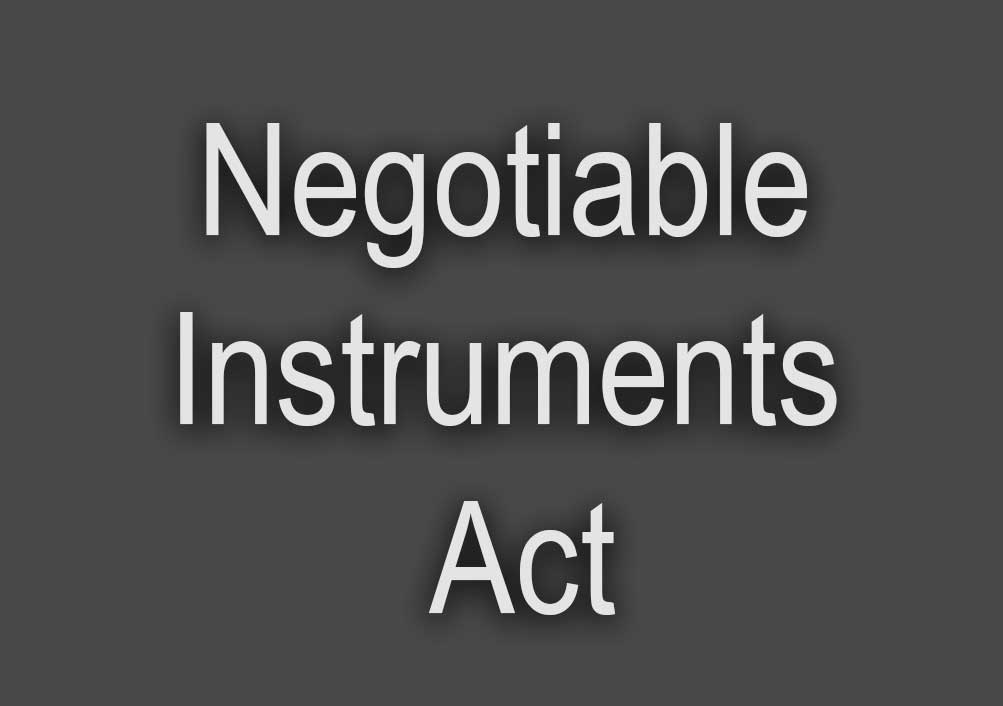In Criminal Appeal No. 001123 of 2022-SC- In case accused fails to deposit interim compensation as directed in terms of sec.143A of NI Act, it would not be within competence of court to deprive him of his right to cross examine witness: SC Justices Uday Umesh Lalit, S. Ravindra Bhat & Sudhanshu Dhulia [02-08-2022]

Read Order: NOOR MOHAMMED v. KHURRAM PASHA
Mansimran Kaur
New Delhi, August 3, 2022: The Supreme Court has reaffirmed the well known principle that if a statute prescribes a method or modality for exercise of power, by necessary implication, the other methods of performance are not acceptable.
The Larger Bench of Justice Uday Umesh Lalit , Justice S. Ranvindra Bhat and Justice Sudhanshu Dhulia allowed the instant appeal preferred by the appellant in order to assail the correctness of the judgment and order dated December 17, 2021 passed by the High Court of Karnataka in Criminal Revision Petition of 2021.
The bench was of the opinion that since the right to cross-examine the respondent was denied to the appellant, hence the decisions rendered by the courts below suffered from an inherent infirmity and illegality.
The instant proceedings emerged from the complaint case of 2019 instituted by the respondent in respect of offence punishable under Section 138 of the Negotiable Instruments Act, 1881 .
A cheque dated February 25, 2019 in the sum of Rs.7, 00,000/- was drawn by the appellant in favor of the respondent towards repayment of hand loan received by the appellant from the respondent. Said cheque was presented for encashment but was dishonored on account of insufficient funds.
Subsequently, statutory notice was issued by the respondent to the appellant on March 12, 2019. However, the appellant failed to pay the amount to the respondent. Thus, the appellant was guilty of offence punishable under Section 138 of the Act.
Thereafter, when the matter was taken-up for examination of witnesses, an application was made on behalf of the appellant under Section 145(2) of the Act seeking permission to cross-examine the respondent.
In view of his failure to deposit the interim compensation as directed, the application preferred by the appellant was found to be not maintainable and was dismissed by the Trial Court through order dated October 25, 2019.
By subsequent order, the complaint case was accepted by the Trial Court finding the appellant guilty under Section 138 of the Act.
Aggrieved of the same, the appellant preferred the criminal appeal of 2019; however the same was dismissed by the Appellate Court through an order dated October 28, 2020.
However, the matter was carried forward by the appellant by instituting the Criminal Revision Petition of 2021 before the High Court. The High Court through its impugned order dated December 17, 2021 dismissed the same.
The Court after considering the submissions from both the sides deemed it necessary to consider the relevant provisions of the Negotiable Instruments Act 1881, specifically Section 143 A.
In view of the same, the Court observed that it is a well known principle that if a statute prescribes a method or modality for exercise of power, by necessary implication, the other methods of performance are not acceptable.
Reliance was placed on the cases namely, State of Uttar Pradesh vs. Singhara Singh and others, Commissioner of Income Tax, Mumbai vs. Anjum M.H. Ghaswala and J.N. Ganatra vs. Morvi Municipality
It was further noted by the Court that the concerned provision nowhere contemplates that an accused who had failed to deposit interim compensation could be fastened with any other disability including denial of right to cross-examine the witnesses examined on behalf of the complainant. Any such order foreclosing the right would not be within the powers conferred upon the court and would, as a matter of fact, go well beyond the permissible exercise of power, the Court noted.
Additionally, the Court stated that since the right to cross-examine the respondent was denied to the appellant, thus the decisions rendered by the courts below suffered from an inherent infirmity and illegality.
Thus, the Court was of the opinion that the instant appeal shall be allowed and the decisions rendered by all other three courts shall be set aside. Hence the matter was remitted back to the file of the Trial Court.
Accordingly, the appeal was allowed.
Sign up for our weekly newsletter to stay up to date on our product, events featured blog, special offer and all of the exciting things that take place here at Legitquest.




Add a Comment